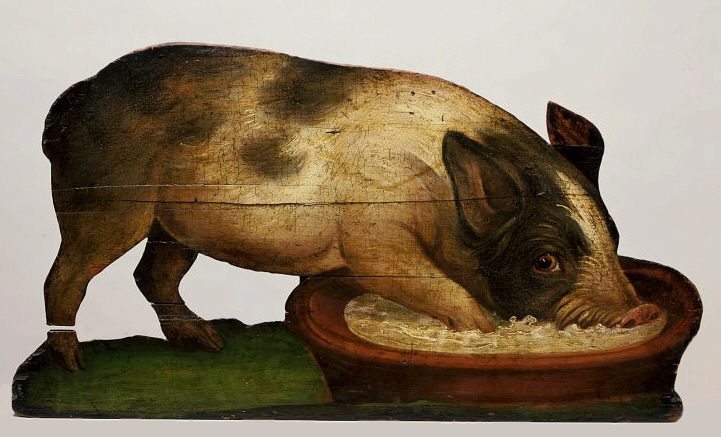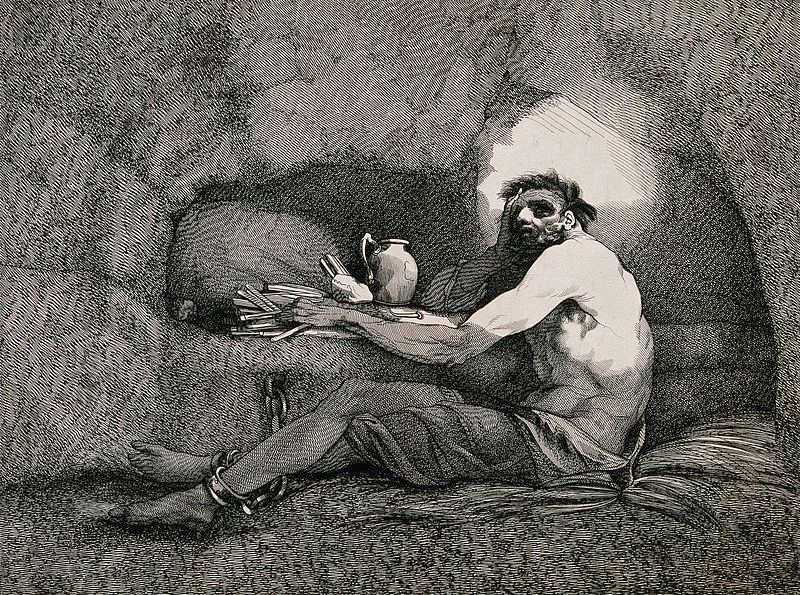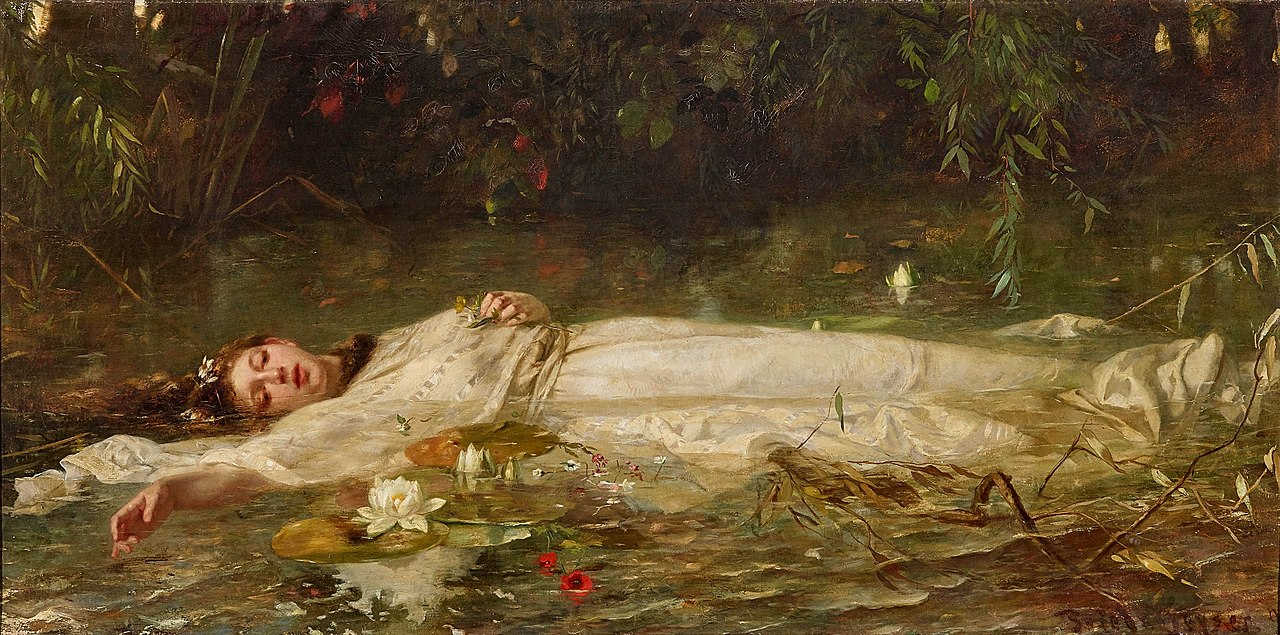
porculation
n. the feeding or fattening of pigs
(Thanks, Rob.)

porculation
n. the feeding or fattening of pigs
(Thanks, Rob.)

(Thanks, Sanford.)

Science fiction writer Harlan Ellison typed more than 1,700 works using a single finger of each hand. In 1999 Mike Keith set out to learn which words would be easiest for him to type. “Easy” means that successive letters are typed by alternate hands and that the hands travel as little as possible. (See the article for some other technicalities.)
Here are the easiest words of 4 to 13 letters; the score in parenthesis is the total linear distance traveled by the fingers, normalized by dividing by the length of the word (lower is better):
DODO, PAPA, TUTU (0.00)
DODOS, NINON (0.20)
BANANA (0.17)
AUSTERE (0.77)
TEREBENE (0.53)
ABATEMENT (1.12)
MAHARAJAS (0.88)
PROHIBITORY (1.15)
MONOTONICITY (1.19)
MONONUCLEOSIS (1.05)
Ellison could easily have used most of these in a story about an infectious disease outbreak in India. But I guess that might have looked lazy.
(Michael Keith, “Typewriter Words,” Word Ways 32:4 [November 1999], 270-277.)

dungeonable
adj. malicious, damnable; devilish
From Ed Southall’s Twitter feed, a polygon name builder:
A 55-sided figure is a pentacontapentagon; one with 79 sides is a heptacontaenneagon. A system exists to go even higher: A figure with 9,000 sides is an enakischiliagon, and one with a million is a megagon.
René Descartes suggested the 1,000-sided chiliagon as an example of a thing that can be considered without being explicitly imagined; one “does not imagine the thousand sides or see them as if they were present.” So the intellect is not dependent on imagination.
In a 1954 essay, “The English Aristocracy,” Nancy Mitford observed that English class consciousness had permeated the language itself, so that using the wrong term betrayed a lack of breeding. She had been inspired by linguist Alan S.C. Ross, who distinguished upper-class (“U”) terms from those used by the middle class:
| U | Non-U |
| Bike or Bicycle | Cycle |
| Dinner jacket | Dress suit |
| Knave (cards) | Jack |
| Vegetables | Greens |
| Ice | Ice cream |
| Scent | Perfume |
| They’ve a very nice house | They have (got) a lovely home |
| Ill (in bed) | Sick (in bed) |
| Looking-glass | Mirror |
| Chimneypiece | Mantelpiece |
| Graveyard | Cemetery |
| Spectacles | Glasses |
| False teeth | Dentures |
| Die | Pass on |
| Mad | Mental |
| Jam | Preserve |
| Napkin | Serviette |
| Sofa | Settee or couch |
| Lavatory or loo | Toilet |
| Rich | Wealthy |
| Good health | Cheers |
| Lunch | Dinner (for midday meal) |
| Pudding | Sweet |
| Drawing-room | Lounge |
| Writing-paper | Note-paper |
| What? | Pardon? |
| How d’you do? | Pleased to meet you |
| Wireless | Radio |
| (School)master, mistress | Teacher |
Ross added, “It is solely by their language that the upper classes nowadays are distinguished since they are neither cleaner, richer, nor better-educated than anybody else.” Mitford said she’d written the essay “In order to demonstrate the upper middle class does not merge imperceptibly into the middle class.”
The essay touched off a vigorous national debate about English snobbery; Mitford’s essay was published in a 1956 book, Noblesse Oblige, to which John Betjeman contributed a mordant poem, “How to Get On in Society”:
Phone for the fish knives, Norman
As cook is a little unnerved;
You kiddies have crumpled the serviettes
And I must have things daintily served.
Are the requisites all in the toilet?
The frills round the cutlets can wait
Till the girl has replenished the cruets
And switched on the logs in the grate.
It’s ever so close in the lounge dear,
But the vestibule’s comfy for tea
And Howard is riding on horseback
So do come and take some with me
Now here is a fork for your pastries
And do use the couch for your feet;
I know that I wanted to ask you-
Is trifle sufficient for sweet?
Milk and then just as it comes dear?
I’m afraid the preserve’s full of stones;
Beg pardon, I’m soiling the doileys
With afternoon tea-cakes and scones.
(Alan S.C. Ross, “Linguistic Class-Indicators in Present-Day English.” Neuphilologische Mitteilungen 55:1 [1954], 20-56.)

In Paul Griffiths’ 2008 novel let me tell you, Ophelia tells her story using only the 481-word vocabulary given to her in Hamlet:
So: now I come to speak. At last. I will tell you all I know. I was deceived to think I could not do this. I have the powers; I take them here. I have the right. I have the means. My words may be poor, but they will have to do.
What words do I have? Where do they come from? How is it that I speak?
There will be a time for me to think of these things, but right now I have to tell you all that I may of me — of me from when I lay on my father’s knees and held up my hand, touching his face, which he had bended down over me. That look in his eyes. …
“Where other characters from the play speak, they are similarly confined to the words Shakespeare gave them. Gertrude, for example, can use only Ophelian words present also in her own language. The one exception is the prefatory statement, whose author has full access to his play vocabulary.” A longer excerpt is here.
paracosm
n. a detailed imaginary world, especially one created by a child
When English curate Patrick Brontë brought home a box of wooden soldiers in June 1829, his 12-year-old son Branwell shared them with his sisters. “This is the Duke of Wellington! It shall be mine!” cried 13-year-old Charlotte, and 11-year-old Emily and 9-year-old Anne took up heroes of their own. In the children’s shared imagination, the “Young Men” traveled to the west coast of Africa; settled there after a war with the indigenous Ashantee tribes; elected Arthur Wellesley, the Duke of Wellington, as their leader; and founded the Great Glass Town at the delta of the River Niger.
After 1831 Emily and Ann “seceded” to create a separate imaginary country, Gondal, and after 1834 Charlotte and Branwell developed Glass Town into yet another imaginary nation, Angria. In various combinations the four edited magazines, wrote histories, and composed stories, poems, and plays about these shared fantasy worlds, with alliances, feuds, and love affairs that play out across Africa and the Pacific.
These writings eventually filled 484 pages before maturing interests inevitably sent the Brontës in different directions, but this early work helped to shape the themes and styles of their later poems and novels.
Students are sometimes taught never to use the same word twice in a sentence. This can lead to trouble: If a writer uses a synonym merely to avoid repeating a word, the reader can be left wondering whether there’s some significance in the change. H.W. Fowler called this affliction elegant variation and added, “There are few literary faults so widely prevalent.” He gives some examples:
The Bohemian Diet will be the second Parliament to elect women deputies, for Sweden already has several lady deputies.
Mr. John Redmond has just now a path to tread even more thorny than that which Mr. Asquith has to walk.
“What has Bohemia done that its females should be mere women?” Fowler asks. “And can Mr. Asquith really have taught himself to walk without treading?”
Charles W. Morton called this the “elongated yellow fruit” school of writing, after a famous second reference to a banana in the Boston Evening Transcript. (Sub-editors at the Guardian began using the term “povs” after one writer referred to carrots as “popular orange vegetables.”) Morton cited some further examples:
billiard balls = “the numbered spheroids”
Bluebeard = “the azure-whiskered wifeslayer”
Easter egg hunt = “hen-fruit safari”
milk = “lacteal fluid”
oysters = “succulent bivalves”
peanut = “the succulent goober”
songbird = “avian songster”
truck = “rubber-tired mastodon of the highway”
In A Slight Sense of Outrage, Morton wrote that the sin “lies somewhere between the cliché and the ‘fine writing’ so dreaded by teachers of English Composition. … It does bespeak an author who wishes to seem knowledgeable, and versatile. … It can also bespeak an author who is merely pompous.”
William Hone’s Every-Day Book of 1837 repeats a story in which St. Martin meets the devil, who asks why he is walking to Rome rather than riding. The saint commands him to become a beast of burden, the devil assumes the shape of a mule, and Martin jumps onto his back and spurs him on his way by repeatedly making the sign of the cross. At length the devil says:
Signa te, Signa: temere me tangis et angis:
Roma tibi subito motibus ibit amor.
That means “Cross, cross thyself — thou plaguest and vexest me without necessity; for, owing to my exertions, Rome, the object of thy wishes, will soon be near.” And each line is a palindrome, reading the same backward and forward.
Hone adds, “These lines have been quoted imperfectly and separately in ‘Encyclopedies’ and other books, under the words ‘Palindromical verses;’ but the reader will not easily meet with the legendary tale, which gives them historical consistence and meaning.”